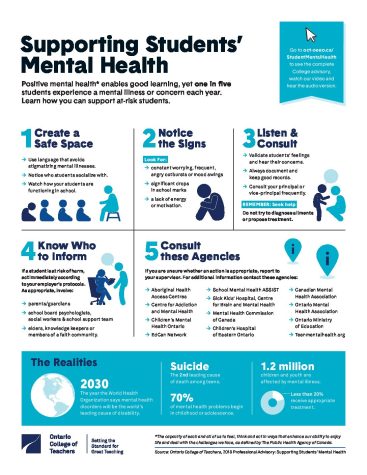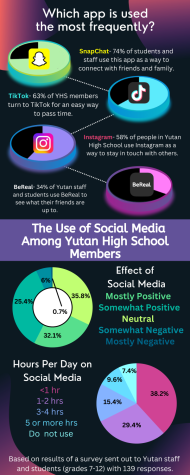The desensitization of the American teenager
Tederman argues high exposure to extreme information decreases teen sensitivity
On Jan. 31, there was an active shooter incident at Target off West Center Road. Just minutes after the first 911 calls were made, the news was being published. Students at Yutan were talking about the event, many with little regard for the severity of the situation. Some students were joking about it and even went to that Target later that day. Thankfully, no one except the shooter was injured or killed. However, this situation made me realize just how much today’s teens are being desensitized by the media.
Before social media existed, teens lived in the bubble of their own city or town. We did not experience the whole world’s problems through a screen small enough to fit in our own pockets. Now, the media impacts teens every day with devastating consequences. This desensitization could be a defense mechanism to deal with the anxiety and stress that come from the media, or it could just be the trained reaction from overexposure. Either way, it is not a good thing.
Through the media, teens see a barrage of bad news daily. Just a few examples include shootings, natural disasters, addiction, abuse, terrorism, gang violence and online violence. Because of overexposure to these events, teens have less of a reaction. Since we have adjusted to the extreme highs and lows of the world we are exposed to all day every day, we react less strongly to things that are problematic. Unless it happens directly to us or someone we know, there is very little reaction.
According to Security.org, in school shootings alone, 140 people have died and more than 500 have been injured since 2018. This should affect us as school-aged kids more than almost anything else, but these incidents keep happening at an alarming rate. Teens no longer react to shootings just a few miles away or even at places regularly visited. Thinking about the bad things that happen around us would force us outside of what we want our normal to be, so we don’t think about it. Along with shootings, natural disasters kill 60,000 people yearly on average according to Statista.com. Teens care less and less every day because it happens all the time and there doesn’t seem to be a solution. With both of these issues and many more, it is difficult to keep up with the barrage of upsetting or sad information.
I believe the issue is contained in the overwhelming amount of things thrown at us. For every issue that arises, the question seems to be, “Well, what are YOU going to do about it?” or “How will YOU solve this issue?” This is problematic because the more things we are asked to care about and devote energy to, the thinner our energy is spread. We are less able to feel true emotions toward the bad things that happen. In addition, I think that we don’t experience the good things as strongly. This could be because reacting to every single thing would be very emotionally draining. It could also be because it doesn’t seem like those in power are doing enough to solve things, leaving the solutions to us.
If this problem continues, however, our empathy and compassion for the world will continue to decrease. We will have been stretched too thin, and this will cause a divide between our generation and everything else that is happening around us. When the divide forms, there may not be a chance of recovery. Something needs to be done in order to heal this new problem; otherwise, future generations will experience the same thing.
With the problem being contained in the constant stream of information, I think one solution could be contained in taking a step back from the negative media. Teens should not be forced to question what they are supposed to be doing to solve a world problem when we do not have the capacity to do anything about it. The problem is not in the information that is available to us. It is in the mindset of trying to save everyone and solve everything. If we can avoid this mindset, we can allow teens to care about the things they can help with and reverse the effects of desensitization.
Your donation will support the student journalists of Yutan High School. Your contribution will help cover our annual website hosting costs, as well as allow us to purchase equipment and produce more in-print editions.

Bella Tederman is a senior in her fourth year of journalism. She enjoys writing stories and taking pictures. Outside journalism, Bella is involved in...






